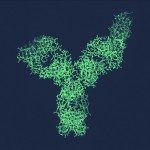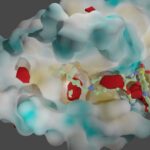Link to Pubmed [PMID] – 26599419
Future Med Chem 2015;7(17):2317-31
AIM: Molecular dynamics simulations and normal mode analysis are well-established approaches to generate receptor conformational ensembles (RCEs) for ligand docking and virtual screening. Here, we report new fast molecular dynamics-based and normal mode analysis-based protocols combined with conformational pocket classifications to efficiently generate RCEs.
MATERIALS & METHODS: We assessed our protocols on two well-characterized protein targets showing local active site flexibility, dihydrofolate reductase and large collective movements, CDK2. The performance of the RCEs was validated by distinguishing known ligands of dihydrofolate reductase and CDK2 among a dataset of diverse chemical decoys.
RESULTS & DISCUSSION: Our results show that different simulation protocols can be efficient for generation of RCEs depending on different kind of protein flexibility.

